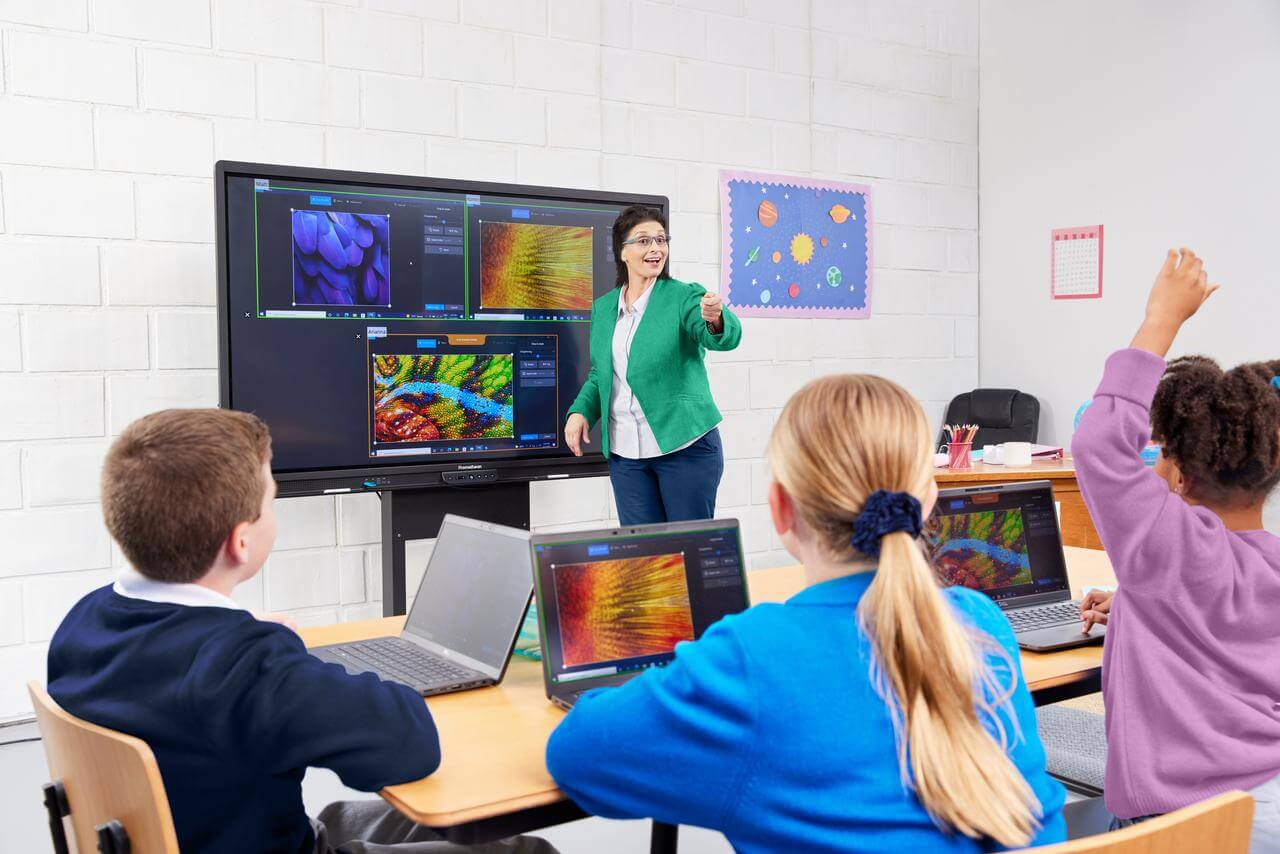Personalized Primary Science Tuition Singapore to Cater to Your Child’s Needs
Personalized Primary Science Tuition Singapore to Cater to Your Child’s Needs
Blog Article
Exploring the Various Teaching Approaches in Main Scientific Research Education Today
The landscape of primary science education is progressing, with numerous mentor approaches acquiring prestige in contemporary class. Inquiry-based understanding, hands-on experiments, and the integration of technology are redefining exactly how educators engage young minds. Additionally, collaborative techniques and distinguished direction are being employed to accommodate the diverse needs of pupils, boosting both interaction and understanding. As we examine these methods, questions arise concerning their efficiency and the effects for future educational practices. What might these changes in technique mean for the future generation of learners?
Inquiry-Based Discovering
Inquiry-Based Understanding (IBL) is a pedagogical technique that motivates trainees to check out scientific concepts via wondering about, investigation, and hands-on trial and error. This technique stresses the function of trainees as active participants in their learning, advertising important reasoning and analytic abilities. By engaging with real-world concerns, trainees become curious and inspired, which improves their understanding of clinical concepts.
In IBL, teachers function as facilitators, leading trainees as they navigate their questions instead than delivering details straight. This student-centered approach enables for distinction, accommodating different discovering designs and speeds. Trainees create abilities in creating theories, creating experiments, and examining information, which are critical for clinical proficiency.
Furthermore, IBL promotes cooperation among pupils, urging them to share ideas and findings. This cumulative questions promotes social abilities and a feeling of area within the class. The procedure of query urges strength, as trainees learn to accept failing as a tipping rock towards understanding.
Hands-On Experiments
Hands-on experiments are a vital component of effective scientific research education and learning, complementing the principles of inquiry-based knowing. These experiments allow pupils to engage straight with scientific ideas, promoting a deeper understanding via experiential knowing. By adjusting materials and observing outcomes, young students can understand abstract concepts in substantial methods.
Such activities advertise essential reasoning and analytic abilities, as trainees assume results, conduct experiments, and evaluate results. This process motivates them to ask concerns, refine their understanding, and develop a clinical attitude. Hands-on experiments can be tailored to diverse learning designs, making certain that all students have the chance to engage meaningfully with the content.
Furthermore, hands-on experiments commonly encourage partnership amongst peers, advertising team effort and communication abilities. Operating in teams allows pupils to share concepts, review searchings for, and gain from one an additional, which boosts their total educational experience.
Integrating hands-on experiments into the main science educational program not just enhances the learning atmosphere yet additionally grows a long-lasting interest in scientific research. By actively joining their education, trainees are more probable to develop a passion for scientific inquiry that extends beyond the classroom.

Innovation Integration
Incorporating modern technology right into key scientific research education has actually ended up being increasingly necessary in fostering pupil engagement and boosting finding out end results. Using digital devices, such as interactive simulations, digital laboratories, and academic software, supplies students with chances to discover scientific principles in cutting-edge means. These resources facilitate a deeper understanding of complex subjects by enabling students to envision and control variables that would certainly be not practical in a typical class setup.
In addition, modern technology assimilation motivates individualized learning experiences. Pupils can progress at their own speed, reviewing difficult ideas with multimedia resources, which accommodate different knowing designs. This flexibility not only sustains private development yet likewise grows a sense of autonomy in learners.
Additionally, technology serves as a bridge to real-world scientific research, linking pupils with existing research study and expert contributions. Access to scientific journals and online databases widens students' viewpoints on clinical query and fosters essential believing abilities.
Collaborative Discovering
Collective learning plays an essential function in main scientific research education by cultivating synergy and interaction abilities amongst pupils. This method encourages students to interact, share expertise, and participate in problem-solving, which improves their understanding of clinical ideas. By joining group activities, students learn to articulate their ideas, pay attention to diverse point of views, and work out remedies, all of which are essential abilities in both real-world and academic contexts.

Study indicates that collaborative learning can cause boosted inspiration and engagement in science topics, as pupils locate pleasure in shared experiences (primary science tuition Singapore). Additionally, this method prepares trainees for future collective ventures, equipping them with the skills needed for efficient team effort in college and professional settings. Ultimately, embracing collaborative discovering in primary scientific research education and learning can dramatically enhance the knowing experience and advertise a much deeper understanding of clinical query
Set Apart Guideline

Separated guideline can show up in numerous means, such as varying the web content, procedures, or items of discovering. For example, teachers may utilize tiered tasks that offer varying degrees of intricacy, enabling pupils to operate at their corresponding preparedness degrees. Additionally, versatile grouping strategies can assist in collaboration among students with different abilities, promoting peer understanding.
Assessment plays a vital duty in this approach, as it informs guideline and aids teachers recognize each trainee's unique requirements. Developmental evaluations, such as tests and observations, can guide teachers in readjusting their approaches to enhance discovering results. primary science tuition Singapore. Ultimately, by applying differentiated guideline in main science education and learning, instructors can grow a more fair and effective understanding atmosphere, equipping all students to reach their full capacity in recognizing scientific phenomena
Final Thought
In summary, the varied teaching strategies in key science education, including inquiry-based learning, hands-on experiments, innovation integration, collaborative learning, and separated guideline, collectively add to a much more reliable discovering atmosphere. These techniques promote crucial reasoning, analytic skills, and a much deeper comprehension of clinical ideas. By implementing these methods, instructors can produce appealing and helpful class that resolve the next diverse needs of students, inevitably cultivating a lifelong rate of interest in science and improving academic success.
Inquiry-Based Learning (IBL) is a pedagogical method that encourages pupils to discover clinical concepts with doubting, investigation, and hands-on trial and error.Collective discovering plays a vital role in primary scientific research education and learning by cultivating synergy and communication skills among students.Research suggests that joint understanding can lead to increased inspiration and involvement in science subjects, as students find enjoyment in shared experiences.In fostering a comprehensive discovering atmosphere, differentiated guideline arises as an essential find technique to accommodate the varied requirements and capabilities of pupils in primary science education. Eventually, by implementing separated instruction in key science education, teachers can grow an extra equitable and effective discovering atmosphere, encouraging all pupils to reach their full potential in comprehending scientific phenomena.
Report this page